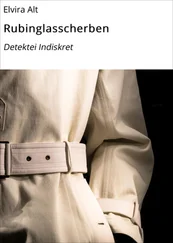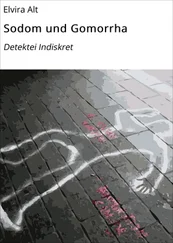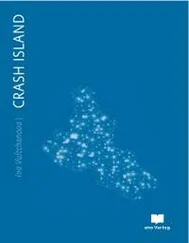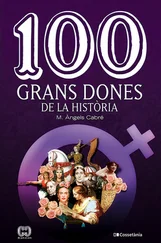Elvira Dones
Sworn Virgin
Elvira Dones is one of the most distinguished Albanian authors writing today. Astonishing, brilliant, and unabashed by taboos of any kind, she is as much at ease in Albanian as in the rest of European literature. This is not only because she writes in two languages — Albanian and Italian (a tradition that goes back to the late middle ages, when the Ottomans prohibited written Albanian and our writers used Latin as a second language) — but because her vision of art and of the world is in harmony with both Albanian and European culture.
Her novel Sworn Virgin takes an apparently exotic subject, but one drawing on literature’s oldest archetypes: the creation of a double, and the transformation of a human being. Hana, the attractive young woman who is the protagonist of this novel, agrees of her own free will to ‘turn into a man.’
The story refers to an ancient if rare Albanian custom that has been preserved into the modern era, according to which, for various reasons — such as the absence of a man in a household or, as in Hana’s case, the fear of rape — a ‘conversion’ was permitted and a woman could change her status from female to male. She would gain all a man’s rights and freedoms, adopt male behavior and dress, take part in assemblies of elders, and go out to cafés to drink alcohol and smoke cigarettes, with the sole condition that she preserve her virginity.
This apparently paradoxical and anomalous custom also has a surreal dimension: it presents a loss as a privilege, and offers subjection in the guise of freedom.
The protagonist of this novel passes through all the tribulations of this frightening transformation like the actor in some extraordinary role in a classical drama that hurtles towards its dénouement.
Ismail Kadare
Translated by John Hodgson
September 2013
The vast, infinite life will begin all over again,
a life not seeing, not talking, not thinking.
From ‘Quatrains’ by Nâzim Hikmet 1
‘So, Mr Doda, you’re a poet,’ says her traveling companion, who has occupied the seat next to Hana on the plane for the last seven hours.
The line of passengers waiting to get through passport control at Washington International Airport snakes tiredly.
‘Not really.’ She tries to smile.
‘But you write poems, if I’ve understood you correctly.’
You can’t write good poems with a dry cunt, she says in her head. She looks away. A woman is touching up her lipstick, her husband watching with slight disgust, tapping his fingers on his passport. Hana catalogs the scene under the heading: ‘Man out of love, woman still hopeful, marriage ceasefire about to expire.’
You can’t write good poems with a dry cunt, she thinks to herself again, annoyed. Why the hell did she tell him she wrote? He pins her down with his look. It’s no good, she thinks, your enlightened male brain will never be able to guess. Hana smoothes down her man’s suit. The sports jacket is a bit big, but not too much.
Her traveling companion stared at her in the same way during the flight.
‘Here’s my card,’ he now says. ‘In case you need anything, information about the capital, any suggestions. If I’m not traveling around the world or at my house in Geneva, I’ll be in DC. Seriously, call me whenever you want, Mr Doda. I’d be happy to help out.’
Mark concentrates on his carry-on. On his shoes. On his cell phone, which he wants to turn on. I’m sorry, she pleads in silence. Hana reads the name on the card: Patrick O’Connor. The man is of Irish origin. She smiles. Christ, we country folk can sniff each other out.
Her left breast begins to itch. She tries to scratch herself without using her hand. She started feeling the presence of her breasts a year ago, as soon as she got her green card and decided to emigrate to America. She can’t seem to stop the itching.
‘Mr Doda,’ Patrick O’Connor calls, indicating with a nod of his head the passport controller’s narrow cubicle.
The line has moved on. Hana kicks her bag forward. Her brown shoes, one on either side of the bag, look like little hibernating bears.
‘What is the purpose of your visit to the United States, Ms Doda?’ the officer asks as he opens her passport.
It’s too late to go back now. Even the village knows he left holding the passport of a woman.
The village had observed, with penetrating, attentive eyes. The way he was dressed on the day he said goodbye was the object of quiet scrutiny; there were no comments. It was a dark time, and people had little energy to spare. Past glory had faded into the howls and excrement of stray dogs. Shreds of history; the moans of gangsters whose only law was the code of honor; suns that were afraid to set for fear of being surprised by death.
Patrick O’Connor — impatient now, the rhythm of everyday life suddenly printed on his face — holds out his hand.
‘It was a real pleasure talking with you. Too bad you don’t have a phone number here in the US yet. Maybe we can talk again before I go back to Albania. Look me up if you want, I really mean it. Well, good luck.’
Hana shakes his hand shyly. She’s a little sorry they’re parting ways. For seven hours this man was her safety net. O’Connor spent part of the time tapping on the keyboard of a sleek white computer with a picture of a bitten apple on its top. What a beautiful object, she had thought. Then he started talking. He was a great conversation-maker, not at all formal.
‘Use that phone number, really!’ O’Connor shouts for the last time, as he turns to leave. ‘I’m pretty sure you’ll need it.’
She gets through the first stage of passport control and breathes a sigh of relief. They point her to an office where she has to go through more formalities. A half-empty room with thin plaster walls. With her limited vocabulary she finds it hard to assemble answers to the officer’s questions, but the man is patient, and Hana is grateful to him.
‘Welcome to the United States of America, Ms Doda,’ he says at last. ‘That’s all we need to know. You can go now.’
She runs into the nearest men’s room, catapulting herself towards a washbasin. The face in the mirror is angular. Hana shifts her gaze to a man waiting to go into one of the stalls. Others, unabashed and hasty, relieve themselves at the urinals. The door opens and closes to the irregular beat of the travelers’ footsteps.
Hana takes a deep breath, hoping to tame her panic. The family is waiting at Arrivals. There’s her cousin Lila, her thirteen-year-old niece Jonida — whom Hana hasn’t seen since she was a baby — and their husband and father Shtjefën, as well as some other people from the village who emigrated years before. ‘Proud to be American,’ as they had said in their badly written letters. They’ve come from various places in Maryland, and from Virginia and Pennsylvania, and even from Ohio.
Hana had spent a great deal of time poring over a map of the United States, but her imagination had melted at the sheer size of the country. America is immense. She had been living in a village of 280 people.
Out! Now! She says to herself almost aloud. Get out and be a man.
That’s what the clan expects. They want to see what they left behind, a young man gone gray with the weight of duty, a much-loved relative but an oddball. Mark’s arrival is meant to bring them back to the mountains, to the smell of dung, to the splutter of guns, to betrayal, songs, wounds, flowers, to brutality, to the seduction of the mountain trails inviting them to throw themselves over the edge, to love.
Читать дальше












